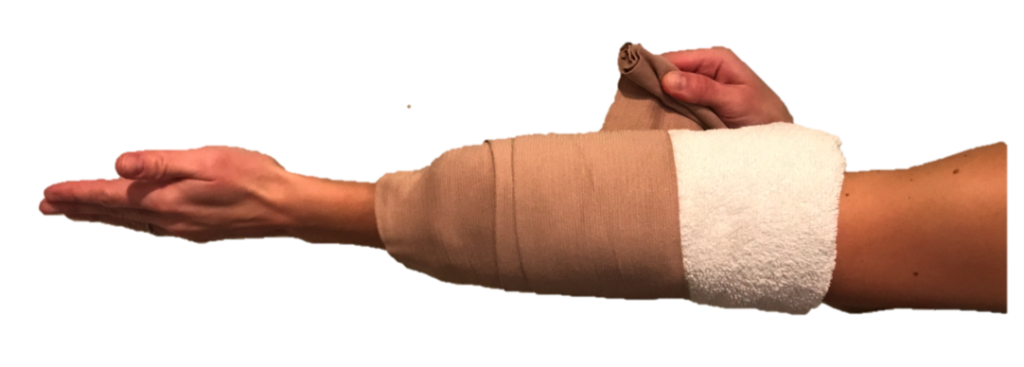Written By: Joseph Schreiber, MD
One of the most common reasons for which a patient will come see me in my office is due to a tingling sensation in their hands. This oftentimes happens at night when sleeping, and can severely disrupt the quality of their sleep. These patients oftentimes say that a burning sensation, or pain in their hands wakes them up throughout the night, and they either need to 1) shake the hand, 2) hang it off the side of the bed, or 3) raise the hand up in the air to alleviate the symptoms.
Why does this happen at night?
The nerves to the hand pass through tunnels, which become narrower when joints are bent. We tend to sleep in the “fetal position”, with our wrists and elbows in a bent (“flexed”) position. Flexing the wrist for long periods of time can pinch the median nerve as it passes through the carpal tunnel at the wrist. This typically causes numbness, tingling, or pain in the thumb, index, and middle finger – known as “carpal tunnel syndrome”. Similarly, sleeping with the elbow bent can pinch the ulnar nerve (the “funny bone” nerve) along the inside of the elbow, thereby causing similar symptoms in the ring and pinky finger – called “cubital tunnel syndrome”.

I tell patients, “If you don’t irritate the nerve for 6-8 hours while you’re sleeping at night, it tends to be much less irritable to you throughout the day.”
There are several non-surgical treatment options for carpal and cubital tunnel syndrome, such as splinting, anti-inflammatories, postural changes, and nerve gliding exercises. When these fail, surgery can oftentimes be very beneficial.
A research study published recently in the Journal of Hand Surgery assessed the quality of sleep in patients before and after carpal tunnel release surgery. In a study of 398 individuals with carpal tunnel syndrome, they found that carpal tunnel release surgery significantly improved quality of sleep as rated by seven aspects. After carpal tunnel surgery, patients had:
- Less difficulty falling asleep
- Easier time staying asleep
- Fewer problems waking up early
- More satisfaction with their sleep quality
- Reduction in sleep problems affecting quality of life
- Less worries about their sleep problem
- Improvement in daily functioning, concentration, and memory
The benefits were seen almost immediately after surgery, and all 7 of these variables were significantly improved as soon as 2 weeks after surgery.
Again, oftentimes carpal tunnel syndrome (and cubital tunnel syndrome) can be managed successfully without surgery. Unfortunately, non-operative management is not always successful. Surgical release of the compressed and pinched nerve can quickly decrease symptoms, and, it turns out, may make you feel much more rested.
Click here to read more about carpal tunnel syndrome and cubital tunnel syndrome.